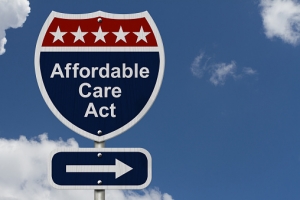Penalty
Applicable Large Employers (ALEs) are those who employed 50 or more full-time equivalent employees in the previous calendar year. Under the Affordable Care Act (ACA) law, ALEs must offer minimum essential coverage to at least 95% of its full-time employees or they risk penalties. ALEs who fail to meet this offer requirement risk a significant penalty if just one full-time employee receives a subsidized individual health insurance plan through a Marketplace.
The Internal Revenue Service (IRS) has issued draft reporting forms for the purpose of filing information necessary to enforce the Employer Mandate. The 2020 draft version of the applicable forms can be found below (with finalized versions expected to be released later this year):
Senator Susan Collins (R-ME) submitted an inquiry to the Internal Revenue Service (IRS) earlier this year asking two very specific questions. She wanted to know if penalties related to the Employer Mandate could be reduced or waived if it would cause a hardship on an employer. She also wanted to know if the IRS would extend the transition relief that was previously available to employers with 50-99 employees. Previous transition relief exempted most employers of this size from the Employer Mandate during its first year of implementation in 2015.
The Internal Revenue Service (IRS) is continuing to send Letter 226J to employers for which the agency believes an Employer Mandate penalty is due. Currently, these notices are being sent to employers for penalties that apply to the 2016 calendar year.
The Internal Revenue Service (IRS) issued Notice 2018-06 which provides some relief for those entities who are subject to reporting requirements under the Affordable Care Act (ACA).
In summary:
Forms 1095-B and/or 1095-C now must be furnished to employees and individuals by March 2, 2018, for the 2017 calendar year. This is a 30-day extension from the original deadline of January 31, 2018. No additional extensions will be granted by the IRS, even if requested by an employer.
The Treasury Inspector General for Tax Administration (TIGTA) issued a report dated April 7th and entitled “Affordable Care Act: Assessment of Efforts to Implement the Employer Shared Responsibility Provision.” In other words, TIGTA issued a report about the efforts of the Internal Revenue Service (IRS) to collect Employer Mandate penalties.
The Affordable Care Act (ACA) continues to evolve. Here are 10 changes expected to take effect in 2017.
On December 11, 2015, the Department of Health and Human Services (HHS) posted guidance for states interested in seeking a State Innovation Waiver under Section 1332 of the Affordable Care Act (ACA).









